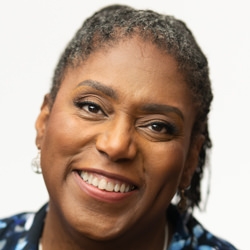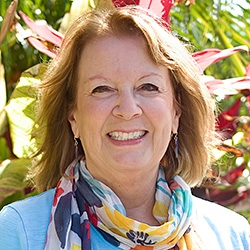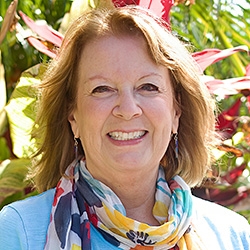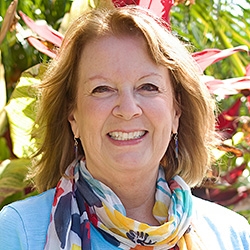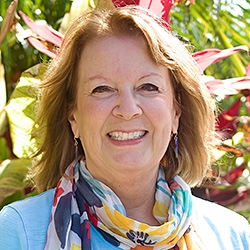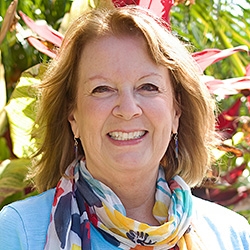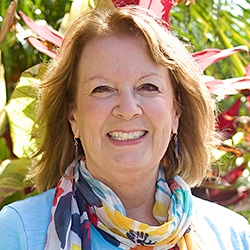
Search Results: groups
-
Roxy Manning discusses the distinction between group purpose and group agreements. Group purpose is identified as the reason for gathering, such as learning to facilitate groups with a focus on inclusion and contribution. Group agreements are the policies or intentions to support the purpose, like creating space for all voices or forming affinity groups to address identity-specific challenges. The emphasis is on how agreements facilitate the manifestation of the group's purpose.
-
Listen to Miki talk about the value of participating in groups, recognizing our inherent nature to do so, how industrialization has hindered our skills and the value of participating in a time when it's most needed.
-
Mary illustrates how we can get diverted from our group's purpose by the needs of a single indvidual in the group, especially requests for prolonged empathy. Listen to Mary reframe these scenarios and offer three helpful tips for handling these situations.
-
CNVC Certified Trainer Miki Kashtan shares a tip on holding a group's needs while empathizing with a single person in the group.
-
Listen to Mary Mackenzie as she focuses on her opening premise for group participation, which lays the foundation for developing vibrant groups and then defines the facilitator’s role, which is often not known or incorrectly defined.
-
NVC groups can sometimes get caught in a rut and lose energy and momentum. Mary shares her extensive experience with seven steps for keeping your group engaged and energized.
-
Ever wondered how to balance everyone’s needs when leading a NVC group? In the first part of the video, Mary shares tips how to balance the facilitator's, the individuals members' and the group's needs. In the second part, Mary talks about transparency as a facilitator - what does it mean, what does it look like and how to be transparent in a way that is supportive for the group.
-
In a workshop, a hesitant white neurodivergent man faced a triggering reaction from a Global Majority transgender man. Uncovering their backgrounds, the facilitator addressed family dynamics and exclusion. A repair exercise fostered empathy, challenging assumptions and emphasizing the importance of equitable facilitation for a richer group experience.
-
Ask the Trainer: "I'm part of a small, self-led NVC group that's been working together for almost two years. We are experiencing some growing pains in that we're still not certain how and under what circumstances to make requests, especially negative ones."
-
- Share NVC in a way that keeps your group engaged
- Walk away with practical facilitation tips and 5 session outlines
- Know how to respond to nay-sayers
- Learn how to promote your work
-
How can I deal with someone who is constantly interrupting and derailing our process?
-
It seems to me that people see ideas which are different from theirs as threatening. Instead of listening, the group polarizes around the different ideas and a lot of judgments develop, conflicts develop and people feel hurt. Forward progress becomes a battle ground. How can I support more collaboration?
-
Ask the Trainer: "Can you share stories of transforming group conflict, or is NVC strictly intended for 'one-on-one' work?"
-
Ask the Trainer: “I would like some suggestions on how to interact with a member of the practice group I started. This individual speaks and acts in a manner I interpret as angry and controlling.”
-
This article explores ways of starting and maintaining NVC study groups and practice groups. It offers recommended reading support materials and poses questions to consider for structuring and organizing the group.
-
Conflict is normal and natural and yet we are still often surprised by it and unprepared to deal with it. You will come away from this session with the tools for creating simple agreements with your group about what to do when conflict arises.
-
Trainer Tip: In an efficient group process, clarity is key. Try to only say things if you are clear what you want back from the group. Then ask for what you want so people don’t have to figure it out for you. If someone says something and you’re not sure what he wants back from the group, anyone can assist by saying this: “I’m confused about what you would like from us. Would you help us clarify what kind of a response you’re looking for?”
-
Ask the Trainer: "A participant in our beginners' NVC practice group asked the co-facilitators if there was a confidentiality agreement that was typically used in NVC practice groups?"
-
Trainer Tip: People struggle to come to agreement when they don’t feel heard. So as a mediator, facilitate the process by asking all parties to reflect the essence of what's important to other parties. This is critical. Once everyone is confident that their needs have been heard, you'll notice the energy in the room relaxing. Then you can brainstorm strategies that will value everyone’s needs, and are focused on what they want to happen.
-

